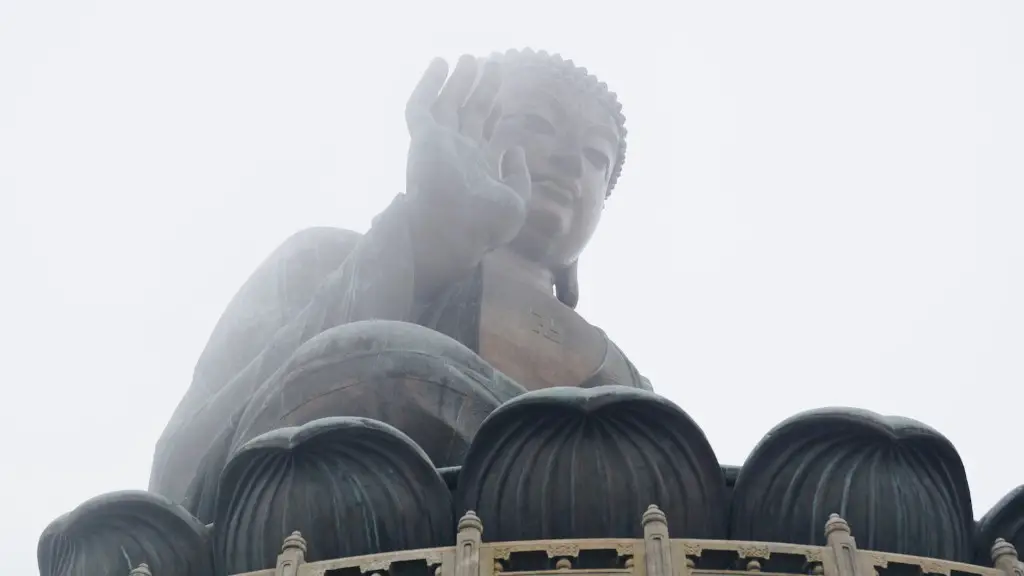The Pope, more formally known as the Bishop of Rome and leader of the Catholic Church, has in many ways been depicted as leader of the Christian faith. Despite being a controversial topic, the truth is that the Pope is not, by any measure, the leader of all Christianity. Therefore it is important to understand this complex issue before making any judgements.
First, we must acknowledge the fact that the Pope is the leader of the Catholic Church. He is the bishop of Rome and considered to be the earthly representative of Jesus Christ. Furthermore, the Pope has the authority to establish and enforce Catholic doctrine and to settle doctrinal disputes among its members.
Pope John Paul II, for example, was universally acknowledged as a leader and arbiter of Catholic doctrine and faith. He was believed to be the authoritative source of Catholic teaching and the moral guide for the faithful. That is why he was consistently seen as a leader in global Christianity.
However, other denominations of the Christian faith, such as Protestants, Orthodox, and Anglicans, do not recognize the Pope as having any authority in their tradition. While the Pope may influence Catholic theology, he does not have the same power over other branches of Christianity.
Moreover, Protestant and Orthodox doctrine depart from traditional Catholic theology in some significant ways. These distinctions are becoming more and more pronounced with the passage of time, indicating that the Pope’s influence will continue to be limited to the Catholic Church.
In addition to this, it is important to keep in mind that the Pope is not infallible, meaning that his teachings are not immune to criticism or debate. Indeed, the Pope has made some controversial decisions and initiatives with far reaching implications for the Catholic Church and the global Christian community.
For instance, Pope Francis’ encyclical Laudato Si: On Care for Our Common Home, which is a call to action for Catholics to work towards preserving and protecting the environment, has been met with some criticism from his own followers, as well as some members of other Christian denominations.
Furthermore, the Pope is not elected by the entire global Christian community and he does not have a direct governing role in other denominations. It is primarily the Church hierarchy, made up of cardinals and bishops, who are responsible for administering the Church.
The Papal Primacy Over The Catholic Church
The Pope’s power and influence over the Catholic Church are certainly undeniable, as evidenced by the fact that he is the most visible spiritual figure in the Church and is viewed by many as the authoritative voice on Catholic doctrine and faith.
The Pope’s role in the Church is based upon the doctrine of papal primacy, which states that the Pope is appointed by Jesus Christ to have ultimate authority over the Church. In other words, the Pope is believed to be the successor of Saint Peter, who was the first bishop of Rome. This doctrine was established in the 11th century, and has since been accepted by Catholics worldwide.
The Pope’s authority is also evident in the fact that he has the ability to appoint and remove cardinals, bishops, and other Church leaders. Furthermore, the Pope has the authority to convene and dissolve synods, and has the power to make pronouncements on matters of faith and morals.
The Pope also holds an important role in the ecumenical movement, which is a movement that seeks to bring unity between different branches of Christianity. In this way, the Pope acts as a bridge between Catholic, Orthodox, and Protestant Christian denominations, and is able to promote dialogue between them.
The Papal Authority Over Non-Catholic Christians
While the Pope has a great degree of authority within the Catholic Church, his authority over non-Catholic Christians is much less clear. It is true that the Pope does have some influence over Christian theology and morality, but his authority does not approach the same level as it does within the Catholic Church.
For example, the Pope may issue statements about theological and moral issues, such as on abortion or same-sex marriage, but these statements are not binding on non-Catholic Christians. Likewise, the Pope has no authority to establish Christian doctrine or determine the details of a particular denomination’s faith.
This is not to say that the Pope’s influence is non-existent in non-Catholic Christian circles. Many Protestants, for example, view the Pope as a leader in Christian morality and values, and may follow his example in certain cases.
Furthermore, the Pope’s role in the ecumenical movement cannot be understated and many Christian leaders from all denominations have praised his efforts in bringing unity and harmony between all of Christendom.
The Papal Authority Over Politics, Economics, And The World
Finally, it is important to note that the Pope’s influence extends beyond just matters of faith and morality. The Pope has a long history of speaking out on political and economic issues, ranging from poverty and inequality to war and the environment. Furthermore, the Pope has recently become more vocal on social issues, such as the refugee crisis and promoting world peace.
In this way, the Pope is viewed by many as a global leader and a moral authority, and his words and actions are widely followed and discussed. As a result, the Pope’s views can have a profound effect on the global political discourse and have an impact on policy decisions all around the world.
It is also important to note that the Pope, as head of the Catholic Church, controls a significant amount of wealth and resources, making him a powerful economic actor. This has created a theological-economic empire from which the Pope is able to shape the economic landscape of the world.
Conclusion
In conclusion, it is clear that the Pope is not the leader of all Christianity, but he is indeed a leader within the Catholic Church. Moreover, the Pope’s influence extends far beyond the Catholic Church and into the political, economic, and moral realms, making him a powerful figure both in the Christian world and in global affairs.

